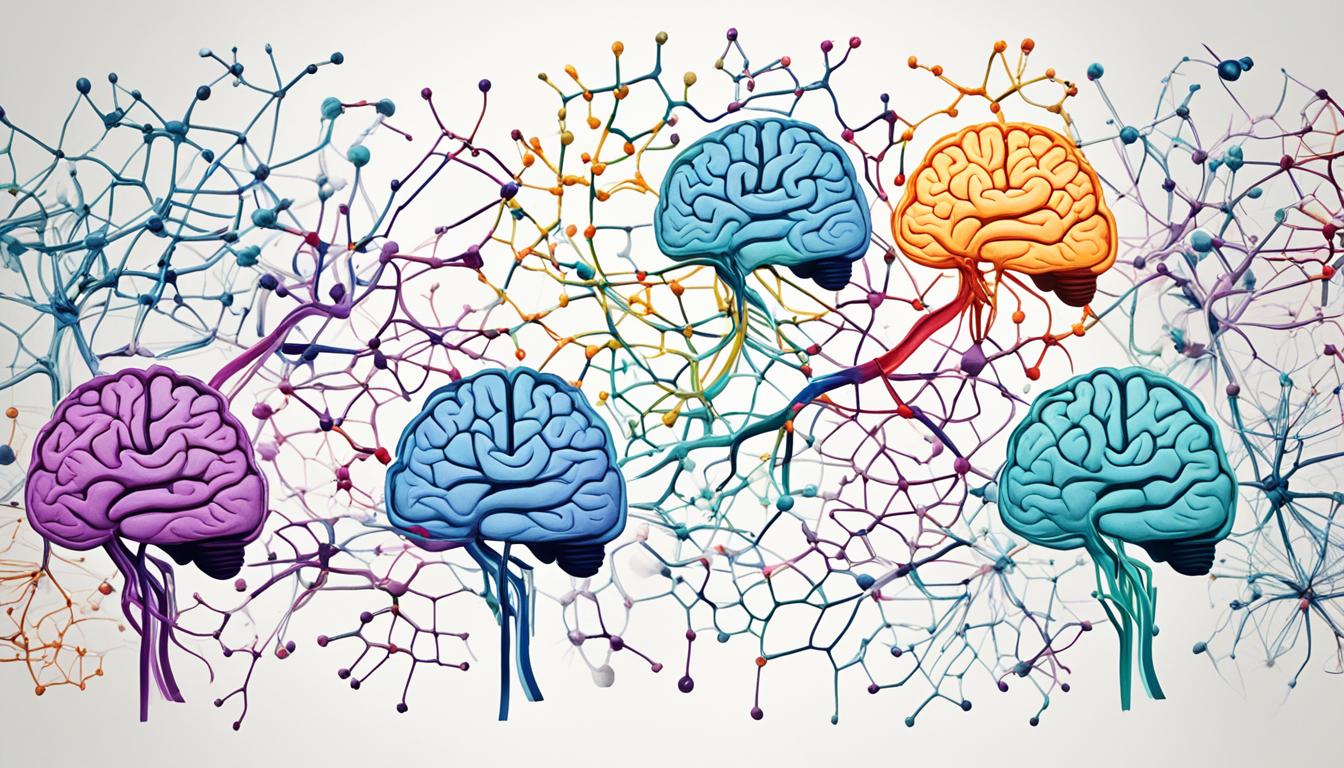Post-chemotherapy cognitive impairment is often called chemo brain. It refers to changes in thinking that happen after cancer treatment. These changes include memory issues, problems with concentration, and trouble with learning and perception. You might find it hard to recall a recent conversation, keep your mind on a task, or learn new skills easily.
About 75% of cancer patients could deal with cognitive changes during treatment. Up to 35% of them might still face these symptoms afterwards. The causes are varied, possibly due to the cancer itself, treatments like chemo or radiation, and emotional stress. The exact reasons are not fully clear.
These changes seriously affect how cancer survivors live. For many, the symptoms get better within a year after treatment. Yet, some may continue to face long-term cognitive challenges.
- Post-chemotherapy cognitive impairment, also known as chemo brain or cognitive dysfunction after chemotherapy
- Symptoms can include memory loss, difficulty concentrating, and mental fogginess
- Up to 75% of people with cancer experience cognitive changes during treatment
- Causes of cognitive impairment in cancer survivors include cancer treatments and psychological factors
- Most people see improvement in symptoms within a year of ending treatment
Prevalence and Risk Factors
The rate of cognitive issues in cancer survivors can change with each study. Still, about 75% might face such changes during therapy. And up to 35% could continue having issues post-treatment. These problems can start at diagnosis, during treatment, or after it ends.
These problems aren’t tied to just one group. They can happen to anyone, no matter their gender or age. Many factors can lead to thinking and memory issues after cancer treatment. These include getting older, how you live, your genes, and things like stress, depression, and poor sleep.
For a better understanding of the prevalence and risk factors for cognitive impairment in cancer survivors, refer to the following table:
| Cognitive Impairment in Cancer Survivors | Prevalence |
|---|---|
| Percentage of cancer patients experiencing cognitive changes during treatment | Up to 75% |
| Percentage of cancer patients continuing to have symptoms after treatment | Up to 35% |
| Types of cancer affected | All types |
| Risk factors | Older age, lifestyle factors, genetics, anxiety, depression, PTSD, fatigue, sleep disturbances |
This table shows how common cognitive issues can be after cancer. It also points out many things that can raise these risks. Knowing these risks is key to helping patients with their memory and thinking issues during and after treatment.
To offer a visual representation, below is an image illustrating the prevalence and risk factors associated with cognitive impairment in cancer survivors:
Mechanisms and Management
The reasons behind cognitive issues in cancer survivors are not completely known. But, scientists think cancer treatments like chemotherapy sometimes cause problems in the brain. This can lead to issues with how we think.
Chemotherapy and similar treatments might cause brain cells to change. This change can result in inflammation which affects how our minds work. So, the brain’s ability to think clearly can be affected by the treatment.
Oxidative damage, another issue from treatments, can also cause thinking changes. When the body can’t handle the harmful chemicals produced, brain cells and other cells suffer. This can lead to issues like forgetting things or trouble concentrating.
Some people’s genes could make them more likely to have thinking problems after cancer. Certain gene types have been linked to a higher risk of these issues. These genes can influence how the brain works, especially during and after cancer treatment.
Treating thinking problems in cancer survivors involves many steps. It can involve exercises to help the mind get stronger. Learning about the problem and how to deal with it can also help.
Living healthy by exercising, eating well, and sleeping enough can be good for the mind. Sometimes, doctors might give medicines to help with sadness or focus. There’s also talk about using stem cells to improve thinking, but we need more research on that.
Helping cancer survivors deal with thinking issues should be personal. By focusing on what causes the problems and choosing the best options for each person, we can make life better for them. This approach deals with inflammation, genetic risks, and other factors to improve how the mind works after cancer.

